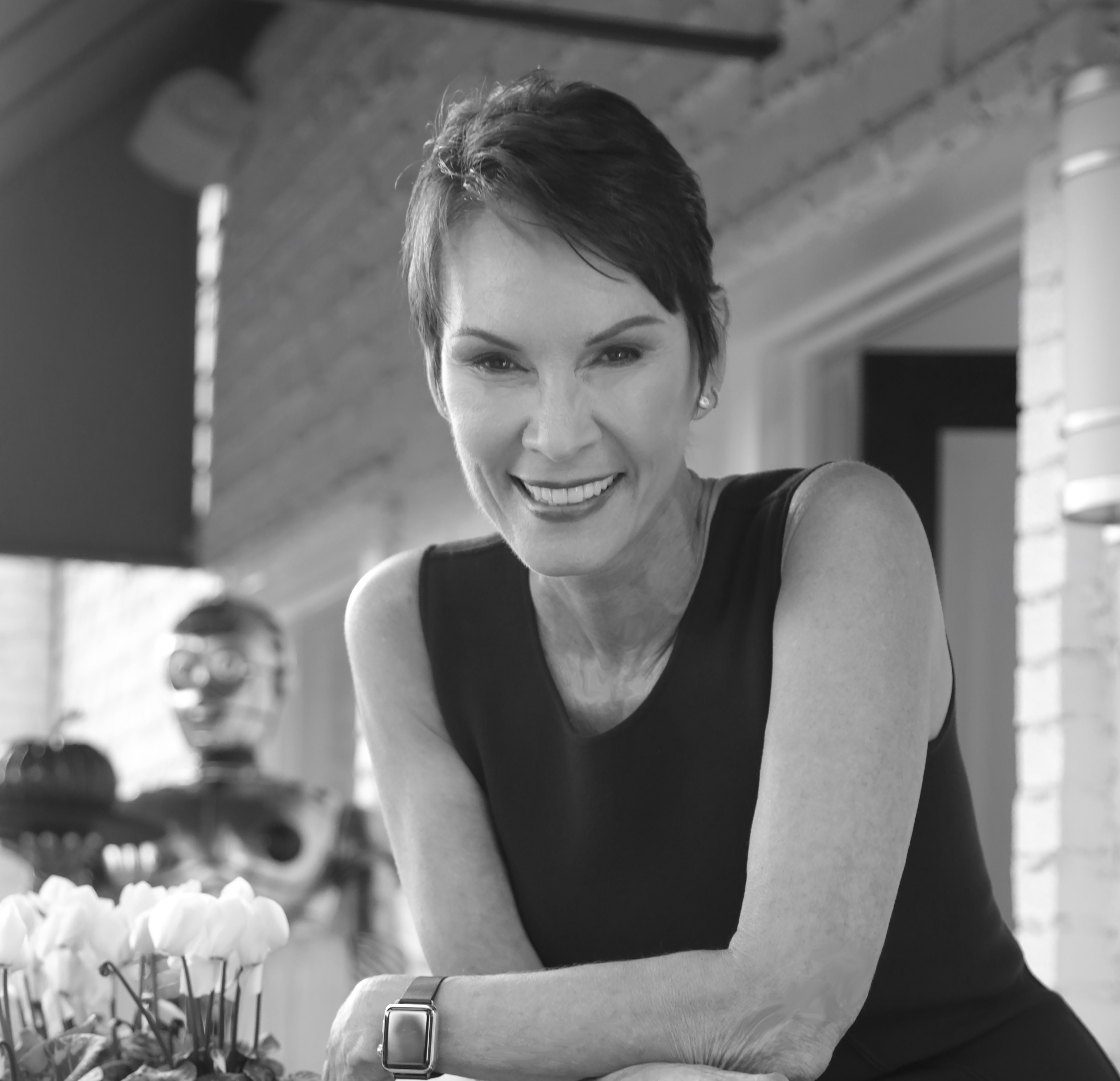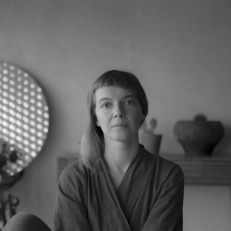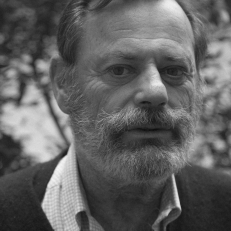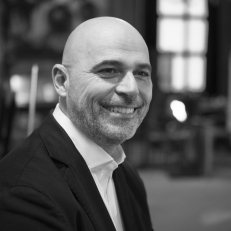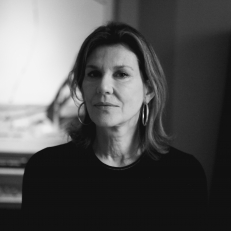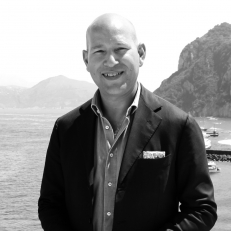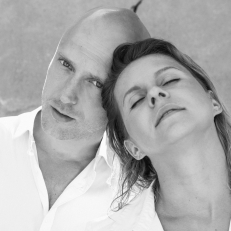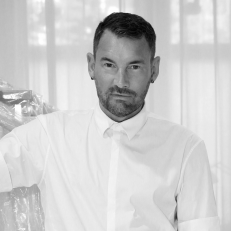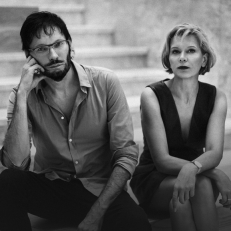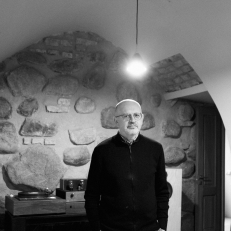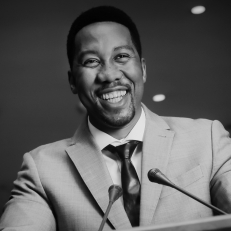Dr. Cheryl Saban is an author, psychologist, and a social activist for Gender Equality. Dr. Saban was nominated by Secretary of State Hillary Clinton, and appointed by President Obama to serve as a Public Delegate at the United Nations 67th General Assembly, in 2012-13, and as a US Delegate to the United Nations 57th Conference on the Status of Women in 2013. She was also presented with the Global Women's Rights Award by the Feminist Majority Foundation. Dr. Saban formed the non-profit The Cheryl Saban Self-Worth Foundation for Women and Girls in 2009, and dedicated $12 million dollars to the empowerment and equality of women and girls in the U.S. and abroad by granting funds to organizations that support education, health, advocacy, and financial independence. Dr. Saban is on the board of Trustees of Girl’s Inc., The Clinton Foundation, Children’s Hospital Los Angeles, The Saban Research Institute, and The Saban Free Clinic of Los Angeles. Other affiliations include The Everychild Foundation, and the Saban Forum for Middle East Studies at the Brookings Institution. Previously she served as a Commissioner for the City of Los Angeles Commission for Children, Youth and Their Families; the Board of Directors of the Los Angeles Universal Preschool; and the Board of Overseers at the Keck School of Medicine at USC. She has been happily married for over 30 years to entertainment mogul Haim Saban and the couple has four kids and four grand-kids. Cheryl Saban earned her Ph.D. in Psychology from California Coast University, and is a member of the American Psychological Association.
Florian DAVID: You have not always been Cheryl SABAN. Looking back, what is today your perception about the child you once were? Who was Cheryl FLOR?
Cheryl SABAN: Hind-sight, as they say, is 20-20 vision. So now I can look back and see the complexities of life’s journey, the rough edges of my oft-times difficult path, and recognize that all is softened, understood, accepted, or adapted to with time. I was a regular kid, growing up in a regular lower middle-class neighborhood, who was at times happy, and at times sad. I had the benefit of being exposed to the gifts of nature via family camping trips; my mom and dad gave us this incredible gift, and I cherish it to this day. Sadly, I was also exposed to parents who fought bitterly about almost everything. On another note, ours was a family that was committed to community involvement and charitable giving – since money was tight, we could only achieve this goal by volunteering our time – and we did so often through organized events with our neighborhood church, or our Boy Scout and Camp Fire Girl affiliations. As much as my folks loved me – and of course they did - I received a lot of conflicting messages as a young girl.
When I was raped at the age of 18, the summer before my first year of college,
I found out how difficult it could be to be a girl. It didn’t matter at all that I was the victim
– I was re-victimized by the system over and over again.
When I was raped at the age of 18, the summer before my first year of college, I found out how difficult it could be to be a girl. It didn’t matter at all that I was the victim – I was re-victimized by the system over and over again. The fact that I wore bell-bottomed jeans, and a peasant blouse – these are all back in fashion today – made me look like “I had asked for it,” according to the police.” I know that in many ways, on multiple levels, that one violent experience altered my life course forever. Oh, I ended up going to college, of course, but I would never be the same. I grew up longing for kindness, love, and gender equality. I wanted a world that was fair, I wanted to be close to nature, and I didn’t want to be dominated by a man.
DAVID: Do you remember a specific time as a small girl growing up when you started feeling a pressure to fit certain stereotypes imposed by society or education because of your female identity?
SABAN: Actually, the indoctrination to fit into the accepted stereotype of the time began when I was quite young. The television shows we watched, the magazines we read, the newspapers – there was always an inherent imbalance of power between women and men, in the way they were depicted or represented. Remember, I grew up in the fifties watching the “Betty Crocker” generation perform. Television was still new, and programs were limited. My worldview was relatively small. Though there certainly were female role models who were scientists, doctors, and political activists, I hadn’t been exposed to them. I remember only that my mom and dad wanted me to take typing and dictation in Junior High School so that I could land a good secretarial job. Home Economics classes, which included cooking and sewing, were part of our required curriculum. When I graduated, I knew how to make my own clothes, speed type, take dictation, open a checking account, whip up a full meal, and figure out how much it would cost.
Now, of course, everything has changed. Who needs to learn dictation when you can record everything on your phone? And school curriculums don’t include wood or metal shop, or home economics anymore. Most kids graduate high school without knowing how to cook a meal, sew on a button, or balance a checkbook. They do, however, know how to type faster with their thumbs on a 3x5 device than anyone would ever have thought possible.
Just for the record, there is NOTHING wrong with being a secretary. I was top of my class in dictation and typing, and those skills served me well all through college. I can happily report that at one time or other, I was an excellent Secretary to a couple of bosses. When I started writing for a living, I typed each word on my computer – rapidly. I was so glad I didn’t need to hunt and peck for each word.
With all that said, my female identity has certainly gone through changes – it has really evolved over time. Change, after all, is the only thing we can count on in life. I had to take back my strength – or rather, grow INTO my strength, and perhaps to acknowledge it – as I discovered more about my own inner power. I needed to gradually find my inner roar. Trust me, I did.
DAVID: Based upon the childhood and education you experienced, were there any personal paths or life choices that you knew early on you would never want to take?
SABAN: It’s funny – I knew I never wanted to be dominated by a man, or to be hurt again after the violence I had experienced in my teen years…Yet, hurt and exploitation can take many forms, can’t they? Psychological abuse being one of them. Once inside an unhealthy relationship where the balance of power is lopsided, it can be a complicated slog through misery getting out of it. It’s easy to say you’re never going to do this thing or that thing – or that you’re not going to encounter this problem or that issue again, but you know what?! Life dishes up all sorts of lessons, and one way or another, we need to learn them. Sometimes we pick up on the message quickly, but other times, the universe needs to present us with the issue again – from another angle, so we can resolve it. At least, this is how I’ve come to view the world.
At any rate, that’s a long, windy way of saying that, I had hopes of being a strong, happy, independent career woman, who had a loving partner in life in a happy marriage – and children I could shower with my affection. It took me a few rides around the block to get there, and, as my Dad always used to say, an expensive education at the school of hard knocks – but I achieved my dreams…My goals for myself, and then some.
DAVID: Do you remember people who have had during your childhood a strong negative or positive influence on you and if so how?
SABAN: I was positively influenced by a woman who lead a singing group in the Camp Fire Girl organization I belonged to. She was a spunky, fun-loving woman who didn’t have children of her own, but who gave of her time to us girls as if we were the most important people on the planet. She was the closest person to a ‘mentor’ that I ever had. She taught us to “stick to it,” and to “stick together.” In fact, our singing group stayed together from grammar school through High School, and performed all over the city.
On the negative side, when I was in Junior High School, I can remember feeling a bit like a duck out of water – and wanting so badly to ‘fit in’ with the popular girls. My self-confidence back in those early teen days was on the low side. So, I thought I’d look more important, and feel more “with it,” if I acted like they did, and started wearing a ton of make-up, and smoking along with this particular bunch of popular kids. Well, as it turned out, this wasn’t my brightest idea. I got caught smoking one day by my mom, who not surprisingly, was furious. Lesson learned? Careful about whom you choose to hang out with. The incident gave me a chance to ponder the kind of “popular” I wanted to associate myself with – because there was a choice to be made. There were kids heading for trouble, and kids heading in the right direction. Did I really want to be a follower? Or could I learn to grow strong on my own and become a leader?
Most of my positive influences came from within my own family. My Dad for certain things – my Mom for certain things. My aunts and uncles for other things. I was quite impressed with one of my aunts because she had a career of her own, and was independent financially. The importance of financial security and independence struck a chord for me, even as a little girl.
DAVID: Could you give us a few instances of specific things that you found deficient in your own education and that you endeavored to remedy or did differently while raising your own kids?
SABAN: Regarding higher education, I had no academic direction whatsoever. Oh, we had high school counselors, but I never felt they were there for me. No one offered suggestions for career choices, or discussed possibilities regarding my academic future. I think that back then everyone assumed “it would all get sorted in the wash,” so to speak. We had a core curriculum for Junior High School, and High School, and that was that. As far as I knew, There was no preparatory testing for the SATs – I was simply given a date to show up for the test. I took it once, and based on my score, was accepted into San Diego State University, which is where I spent my first two years of college. Actually, I wasn’t given options to apply elsewhere because frankly, I couldn’t have afforded it.
I tried to encourage my two oldest daughters to reach for their passions – to get advice from their counselors regarding majors that would lead to careers that would make them happy and fulfilled. But even then – I hadn’t become aware of the many resources that existed at the time to properly advise them. They both found their own way through the labyrinth of the system, however, much as I had to do. My two oldest daughters, Tifanie and Heidi, who are 43 and 41 years old respectively, did indeed go after their passions.
At any rate, before my youngest kids entered college, everything about entering college, and the information stream between the high school counselors and students and parents had changed dramatically. My husband and I made sure our kids communicated regularly with their counselors, and we were much more involved with what the options were, and what the potential academic plan would look like in the years ahead, than we were with our older daughters. By the time my two youngest kids (who are now twenty-seven and twenty-five) were at the stage of making the college rounds, they had both had a chance to really hammer out a plan for their academic future that would make the time they spent in University both productive, and hopefully, holistically fulfilling as well.
DAVID: What place does love occupy in your Life?
SABAN: One of the very highest positions. I couldn’t survive without it. Actually, psychologically, according to Maslow’s Hierarchy of Needs, Love and Belonging falls into the third portion of the pyramid – after Physiological, such as breathing, food, water and sex, and then, Safety – security of body, morality, health, etc. But with all that said, and the first two parts of the hierarchy accounted for, LOVE is now paramount in my life.
DAVID: You seem to have a highly developed sense of Justice, meaning a craving for more Justice - where do you reckon this comes from?
SABAN: I grew up in the 50s, 60s, seeing many inconsistencies in the world…So much hypocrisy. There was much happening around me that seemed wrong and terribly unfair. For example, men and boys could act like bullies or be sexually aggressive, and simply got away with it. There was an attitude of “boys will be boys.” Girls and women had been relegated to a certain strata in society, and as long as they didn’t rock the boat, all was well. But when they tried to be bold, or step outside of the stereotype, there could be reprisals.
Girls and women had been relegated to a certain strata in society, and as long as they didn’t rock the boat,
all was well. But when they tried to be bold, or step outside of the stereotype, there could be reprisals.
I was a ‘hippie,’ of sorts. I didn’t check out of society, or sit around and smoke grass, but I did wear clothing that was associated with my so-called hippie generation – which, by the way, is all back in style.
Perhaps the strongest message of injustice I received, and the one that was inadvertently one of the catalysts for my advocacy for women, was the one I received from the detectives and police officers after I was raped when I was 18. They treated me like I had brought it on myself – like I deserved it, just because of the way I was dressed. I was from what they deemed the radical hippie group. Their judgmental, unkind and unfair attitudes, humiliated me, and made me feel victimized all over again. It was unjust, had nothing to do with the truth, and has had a life-long negative impact on me. They treated me unfairly, and it thoroughly pissed me off.
We’ve come a long way. I’m grateful that rape victims can now seek help at places like the Rape Treatment Center in Santa Monica, California. I can assure you that the police officers on the job today have learned a lot about how to treat a rape victim.
But getting back to a sense of justice and fairness – I admit that I do spend a lot of time thinking that things should be fair, as in equality, and human rights – women’s rights. I would like everyone to live by a fairness doctrine and have a similar moral compass to guide them. But ha. Then I woke up. As Dennis Whole wrote, “Expecting the world to treat you fairly because you are good is like expecting the bull not to charge because you are a vegetarian.”
Much as I hate to admit it – Dennis hit the nail on the head. Which is why we’re always looking for ways to calm the bull.
DAVID: Your interest for women’s well-being started when you taught some disabled boys and girls to swim. Can you tell us a bit about this? What did you learn at the contact of those children?
SABAN: My mom took me to swim lessons every week for years, from the age of 5. I swam competitively for awhile in a synchronized swimming group. I became a junior life-guard as soon as I was legally able to, and a swimming instructor as well. I have always loved the water.
Teaching these mentally and physically disabled children to be water safe was one of my most fulfilling experiences, and it taught me so much about life. Though by the Grace of God go I.
All of the children we taught were severely disabled, and needed one on one instruction. Before one of our sessions began, the parents of one little boy came up to me. They told me that their son had been to many swim classes before, but that he was very afraid, and hadn’t learned anything. They had a pool at home, and desperately wanted him to learn how to save himself if he accidentally fell in. This little boy was severely epileptic, had muscular dystrophy, and other disabilities. His coordination was erratic. His vision was compromised, and he had breathing issues. But he was still willing to get into the water with me.
So, we started our lessons by walking back and forth across the shallow part of the pool, holding hands, scooping up the water, feeling it, getting used to it. He was fascinated by the way the hairs on my arm looked under water. He plucked at them constantly – like they were part of a miniature underwater forest. Slowly but surely, I gained his confidence, and he let me hold his hands and pull him through the water like a little boat. He was thrilled with the sensation. He had a gaggle of teeth that had grown in all angles and lopsided, but when he smiled, his beautiful eyes took over and his face was just beaming like an angel. He giggled and squealed, and thrilled at the free feeling he experienced, floating in the water. Gradually, lesson by lesson, I introduced him to blowing bubbles, kicking, opening his eyes, floating with me and looking underwater at me. He accepted it all, slowly, gradually, gleefully. This little guy, who had been panicked by water, eventually learned how to float, and glide in the water, and kick himself to safety. He could dog-paddle and keep himself afloat long enough to get to the side of the pool. It was truly a magical moment when he received his ‘water-safe graduation’ certificate. His parents cried. I cried. He cried, and plucked at my arm hairs. Pure happiness. He literally radiated light that day. Helping others is truly the best gift you can give yourself.
Helping others is truly the best gift you can give yourself.
DAVID: What is your definition of a ‘Feminist’?
SABAN: The dictionary states that a Feminist is a person who supports Feminism. That definition in itself is rather lacking, because it doesn’t in and of itself describe Feminisim.
So, okay, when I break it down – I’ll suggest that Feminism is a core ideal. I see being a Feminist as a person who supports the idea that the Female is an individual with unique qualities and rights that are equitable with those of her opposite – the Male. And as a Feminist, I believe that a Female’s rights should not be subject to discussion, qualification, submission or vote by the Male, without the Female’s full and equal participation. How’s that?
And as a Feminist, I believe that a Female’s rights should not be subject to discussion, qualification, submission or vote by the Male, without the Female’s full and equal participation.
DAVID: In a recent interview for the Guardian, British fashion designer Vivienne Westwood claimed not being a feminist. This surprised us, you?
SABAN: Sadly, I don’t get overly surprised by such statements anymore…After all, everyone has a right to her or his opinion, right? Even if we don’t agree. However, my opinion is that statements like this, perhaps taken out of context, could end up sending the wrong message to women and girls AND their male supporters who are trying to assert themselves boldly, harmoniously, seeking mutual respect and a balance of power, in a predominately male-dominated society. Such denials can be particularly confusing coming from a powerful, outspoken, successful female designer who clearly doesn’t need to fight too hard for equality just now. Unfortunately, the word, the concept and the movement of “Feminism” have come to mean different things to different people…and some people have decided there is a negative connotation to the word Feminist, which of course is not always helpful to the cause. This is a problem that I’m beginning to see some forward-thinking young women and men address. Not a moment too soon!
DAVID: You say ‘Freedom isn’t free’, can you explain?
SABAN: Just look around. Crazy violence all over the globe. We have American service men and women stationed strategically in bases around the world, who have, of their own free will, made the decision to serve and protect our country, and they have been in the middle of horrendous, bloody, deadly fights. Serving in the Armed Forces is one hell of a choice, given the horrors going on around the world, but we could not be safe without them.
Believe it or not, I’m basically a peacenik - I cut my “activist” teeth, protesting the senseless deaths of the Viet Nam war. I was and always will be fiercely protective of our service men and women, however. I had relatives and friends who served in the Vietnam war – and in Afghanistan. A second cousin of mine took his own life after his time in Viet Nam, because he couldn’t get over the ‘crazy’ memories of it all.
The inscription “Freedom isn’t Free” is written on the wall of the Korean Memorial. This is an impressive Memorial, and if you haven’t been to Washington D.C., this is a tour you must take. This is where I first saw this inscription, and it has helped me frame my feelings about the bravery and courage of those who have served, and still serve our country.
I’d suggest visiting the Viet Nam Memorial Wall in Washington D.C. You’ll find it to be one of the most
overwhelmingly sad and somber walks you will ever take.
I’d suggest visiting the Viet Nam Memorial Wall in Washington D.C. You’ll find it to be one of the most overwhelmingly sad and somber walks you will ever take. When you run your hand along that black granite wall with the names of 58,220 United States Military fatal casualties inscribed into it, and realize that all of those people died serving our country, you begin to get a sense that our freedom isn’t free…It comes at a very high price. Whether you agree with the politics or not – another human being put his or her life on the line, and paid the ultimate price. I’m a patriot. I am proud to be an American. I have both eyes wide open, and may not always agree with the choices made by our government, and the politics involved, and I’m aware we’re not angels. But with that said, I’m lucky to be an American, and at the end of the day, I still know that Freedom is not free.
DAVID: Clearly, the necessity to improve women’s condition is a global fight - you justly remind us for instance that 70% of the 1.5 billion people on earth living with less than 1 dollar a day are women. But even in our so-called ‘modern’ democracies there are many areas where women are still in danger. Could you give us a few concrete examples?
SABAN: I can stay in my own backyard and give you plenty of examples. Women are still at risk of poverty, illiteracy, and violence. Here in the United States, for example:
- 1 in 4 Native American Tribal Women and Alaska Native Women are living in poverty.
- Of the general population of women in the U.S., 1 in 3 American Women – 42 million women and 28 million children, are living in poverty, or very close to it. At this point, poverty is defined as earning $47,000 a year for a family of four.
- The average woman still makes only 77 cents for every dollar a man makes – doing the same job.
- More than half the babies born to moms under 30 are born to unmarried mothers – most of them white.
- 1 in 3 women will be sexually molested and/or physically abused in her lifetime.
- 1 in 5 college girls will be sexually attacked.
- It is estimated that 35% of women experience domestic abuse worldwide.
I’d say we have some work to do. The above statistics help fuel my fire.
DAVID: Sartre said 'what matters is not what has been made of me, but what I make myself with what was made of me’: Is that the meaning of your fight?
SABAN: Yes! Wonderful quote. I think that all the experiences I’ve had – good and not so good, have moved me, changed me, taught me, helped me to adapt, accept, change, grow, and become the woman I am today. Like the famous writer Ernest Hemingway said, “The world breaks everyone, and afterward, some are strong at the broken places.” I am much stronger at the broken places, and now I can take the energy I found in my healing process, and the lessons I learned on my own personal school of hard knocks, and use it all to continue to grow – to be more mindful as a human being – to seek light, to help others, and hopefully to make a positive difference.
DAVID: You mention the Taoïst tradition according to which behind every weakness would hide an undiscovered strength. What does this mean to you?
I accept the Yin and the Yang of life. It’s like understanding that a failure is not a failure, but one of the
lessons on the road to success.
SABAN: I accept the Yin and the Yang of life. It’s like understanding that a failure is not a failure, but one of the lessons on the road to success. It is just the way you choose to look at it. We have the ability to change our attitudes, to change our minds. If you’re grumpy one day, try this. Smile. You’ll be amazed how this simple act will begin to send a different message to your brain. I know, it sounds silly – but you actually have that power.
When I was studying to earn my Ph.D. in Psychology, I learned about the famous Austrian Holocaust survivor and psychiatrist Viktor Frankl. I was totally amazed by him. His life story is nothing short of miraculous. Talk about finding undiscovered strength! Dr. Frankl survived against all odds, in great part perhaps, because he discovered something within himself that the Nazis couldn’t take from him. He realized the importance of finding meaning in all forms of existence. Based on surviving the horrors of the concentration camps of Nazi Germany, he wrote a book entitled, “Nevertheless, Say “Yes” to Life: A Psychologist Experiences the Concentration Camp."
Needless to say, when I feel a weakness in me, or have a problem in life, or whatever – I remember people like Viktor Frankl – and simple sayings like “Look for the silver lining.” I now believe I’ll find one.
DAVID: Let's talk a bit about some of the women who inspire you! You are quite admirative of humanitarian Zainab SALBI and President of Liberia Ellen JOHNSON SIRLEAF. What do you think first characterizes those two amazing women?
SABAN: I can see you’ve read some of my past interviews. I am grateful, and I thank you. Both of these women are, of course, extraordinary, and they are activists. Both Zainab Salbi and President Ellen Johnson Sirleaf have dedicated themselves to the empowerment of women for years. As you probably know, President Johnson-Sirleaf was awarded the 2011 Nobel Peace Prize with Leymah Gbowee of Liberia and Tawakkol Karman of Yemen for their non-violent struggle for the safety of women and for women’s rights to full participation in peace-building work. Both women are strong, intelligent and thoughtful, and want to make positive changes that will enhance the well-being of women. Neither are afraid to speak truth to power, and I’d say that they are exemplary role models for women and girls everywhere.
One of the women who inspires me most, is Gloria Steinem! I always use one of her quotes "The truth will set you free - but first it will piss you off." I am also inspired by Mary Robinson, 7th President of Ireland 1990-1997; Helen Clark, a former Prime Minister of New Zealand and current Administrator of the UN Development Program; Cheryl Crazy Bull of the American Indian College Fund; Secretary Hillary Clinton – running for President of the United States, and Chelsea Clinton, an incredibly intelligent, thoughtful and intuitive young woman, who, along with her famous Dad, now heads up the Clinton Foundation, among many other endeavors. (*For full disclosure, I am one of the Board members on the Clinton Foundation).
In addition, I also want to say that I am inspired everyday by my daughters, who are artists as well as the mothers of my precious grandchildren. I’m inspired by my son – who respects and loves me and holds women in high regard; I’m inspired by my husband, who respects and loves me and treats me as his equal partner. I’m so inspired by my girlfriends – many of whom are entrepreneurs, philanthropists, artists, mothers, grandmothers, authors, doctors, bloggers, scientists, studio executives – the list goes on and on.
I have been lucky in my life to have been exposed to people from all walks of life, all over the world. I guess the message I’d like to impart here is that one needn’t be famous, award-winning, or wealthy to be an inspiration. I think about the good that can be done with just a smile, or the planting of one tree – or visiting your aging parents, or helping Foster kids, or feeding the homeless. I think about how much better the world is when people are kind, and do things for the greater good. THAT inspires me!
DAVID: In the foreword to your inspiring book ‘What is your Self-Worth?’, Nobel Prize Winner and former late Prime Minister and President of Israel Shimon PERES wrote ‘Whomever does not grasp the wonders of women will not experience the taste of love and the significance of life as a couple’. So was Shimon Peres an alien amongst Men? : )
SABAN: Ha ha! Just reading this quote again brings a smile to my face. Shimon Peres could NEVER be called an alien. He was one of the most amazing gentlemen I’ve ever met. Even at 90 years old and beyond, he had not lost his charm, or his spunk, his ability to throw down a beautiful piece of writing like the one above, or his desire for peace and tranquility. He also never lost his deep love for Israel, which I share. He has always cared about peace for both sides – for two peoples, for two states, and long sought for an economic road to peace. Anyway – he has also always been a friend, which is why he so graciously wrote the foreword for my book.
So – I believe you’re basically asking me -- was Shimon a rarity among men, to not only feel the way he did about women, but to acknowledge his opinion so publicly? Perhaps he was, but I surely hope not. I’m lucky to be married to a man who shares Shimon’s sentiments, and I would like to believe there are plenty of men out there who feel the same. If more women and men would raise their sons and daughters to expect this kind of experience, then “God willing,” as they say – it just might be so.
Shop Cheryl SABAN’s Book 'What Is Your Self Worth?' on EPICURUS And We Will Be Giving Back 100% Of The Proceeds To The Global Fund For Women!

